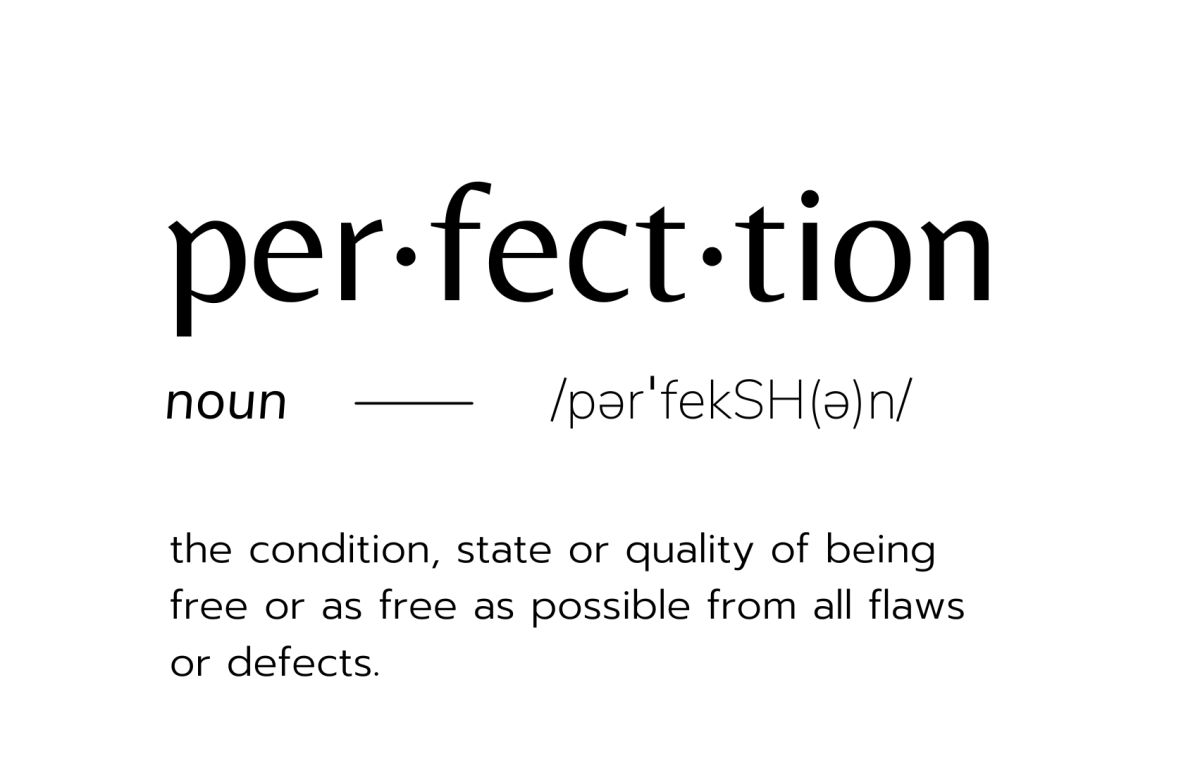Perfection: the condition, state or quality of being free or as free as possible from all flaws or defects.
This definition, taken from Oxford Languages, explains a word I have struggled with for as long as I can remember. As an extreme perfectionist, I often find myself struggling to complete certain tasks or projects because I cannot make them “perfect.” Even now, as I write this story, I find myself going back, rereading sentences, deleting paragraphs and struggling to find the right words, simply because I want it to be as perfect as I can possibly write.
My perfectionism is something that I consider to be my biggest weakness, simply because it is something that I fear I will never be able to escape from. The pursuit of being “perfect” has caused me to cry silent tears, scream with frustration, smile through the pain and everything in between. To me, it feels like an impossible feat to escape from the impenetrable walls that “perfect” has built around me.
However, while the exact experiences may vary from person to person, I am certainly not alone in my emotions. According to the American Psychological Association, between 25%-30% of United States children and teens have perfectionism. This large figure can indicate many things, from the high-achieving mindset that we as a society perpetuate to the goals that parents set for their children. Regardless, perfectionism, especially when unmanaged and in excess, can become extremely crippling.
Recently, as I have been going about my normal daily business at my house, I have observed and been a part of two separate situations that forced me to come to terms with my own perfectionism and how it affects and influences those around me.
This first occurred as I was helping my youngest sister, who is eight years old, get ready before school. She approached me as I was braiding my hair and asked if I could put her hair up into a high ponytail, to which I replied “Of course!” and grabbed her brush. As I was trying to get her ponytail high enough, I found myself growing increasingly frustrated because the ponytail was either too low, crooked or had bumps. After repeatedly trying and failing for about seven minutes, I gave up and told her to go ask someone else because I just couldn’t get it “just right.”
Later in the week, I was talking with my mom about grades, and she brought up how my sister had lost a few points on a spelling test. I instantly caught myself wondering how she had possibly done poorly and hyper fixating on the fact that she made mistakes, something that my mind had registered as unacceptable.
As soon as I realized the path my brain was taking, I had to take a step back and think about just how harmful my thought process was to both myself and my sister. By registering the action of making mistakes as “unacceptable,” I was inadvertently creating a toxic tie between making normal, healthy mistakes and being a complete failure, a thought process that is mentally harmful to both of us.
Perfectionism is a tool that, when used properly, can help an individual to achieve high levels of success. However, when one’s perfectionism is improperly managed, it can lead to a multitude of struggles. The most important thing to remember is that, as cheesy as it is, you don’t need to be perfect in every way to be perfect just as you are.










